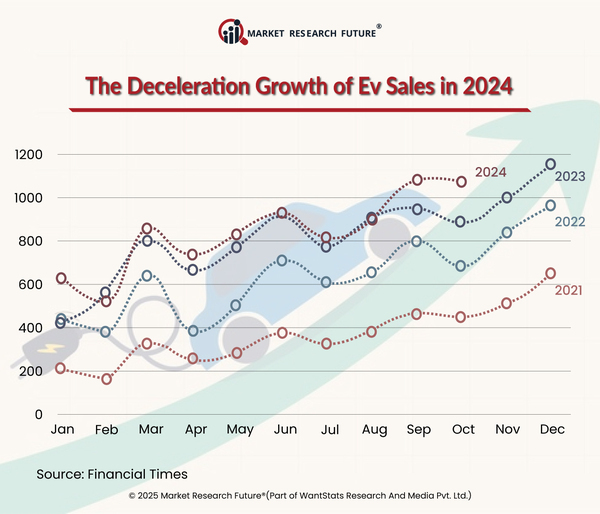High Cost and Infrastructure Constraints Drive the Global EV Sales
The automobile market has experienced a global slowdown since the beginning of 2024. However, the electric vehicle market plummeted over the period in 2024. Several constraints are behind the fall of electric vehicle sales, such as costly raw materials, inflation, and high vehicle costs.
The share of electric vehicles in total global car sales was approximately 13-15 percent, a decrease from the 18-20 percent and 14-16 percent growth figures posted in 2023 and 2022, respectively. According to industry projections, this trend is expected to continue in 2024.
The increasing cost of raw materials for EVs, including lithium-ion batteries, is the leading cause behind slow EV sales in 2024. The components, including lithium, cobalt, and nickel metrics, are expensive. Even though automobile companies have targeted to meet the overlapping cost with internal combustion engine cars by 2024, the following year onwards, time puts an excessive constraint on developing cheaper models that would be the best option for the average population.
In the United States and Europe, the average cost of borrowing money has become more expensive due to increased inflation. Also, with the recent rise of interest rates, many individuals became far less interested in financing EVs as they are much more expensive due to electric vehicle borrowing being costlier than gas-powered vehicles. In a nutshell, there isn't a decreased cost of electric cars, making consumers unwilling to invest.
The global increase in the sales of electric vehicles is being affected by the high cost of purchase, issues regarding charging stations, and fewer subsidies by the government. In conclusion, due to the decreased demand for electric vehicles, large car manufacturers are starting to cut back on production targets and announce layoffs. China's electric vehicle market will flourish in 2024 due to government incentives supporting the electrification of vehicles. However, ICE-driven vehicles are still the preferred choice in various nations, even though automakers have significantly increased EV production. As fuel efficiency improves and hybrid and plug-in hybrids are introduced, many consumers are leaning toward these alternatives that combine the best of both worlds without the hassle of converting.
Moreover, some critics raise concerns while EVs are recognized as an environmentally friendly substitute for ICE vehicles. It is due to the use of lithium-ion battery production and discarded batteries in the environment. As more consumers become alert to the overall environmental cost of EVs, some have begun to understand the need to question their sustainability.






